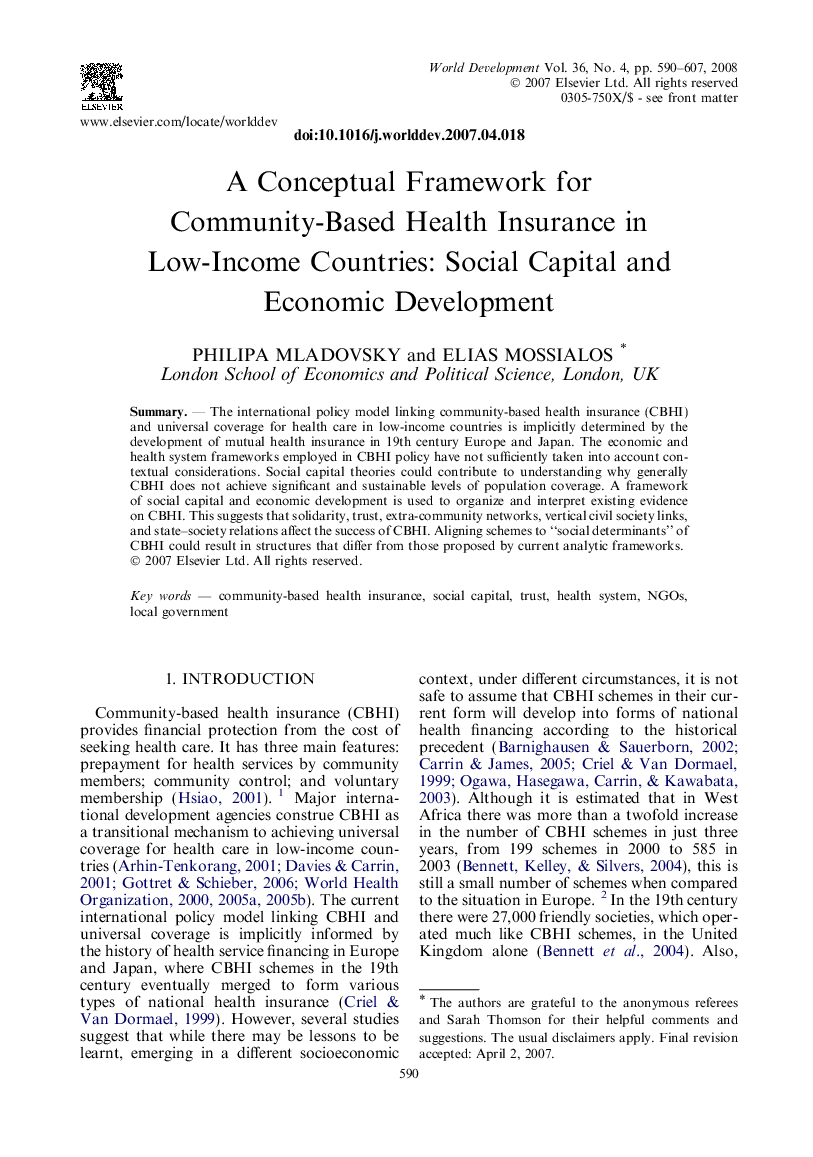| Article ID | Journal | Published Year | Pages | File Type |
|---|---|---|---|---|
| 989448 | World Development | 2008 | 18 Pages |
SummaryThe international policy model linking community-based health insurance (CBHI) and universal coverage for health care in low-income countries is implicitly determined by the development of mutual health insurance in 19th century Europe and Japan. The economic and health system frameworks employed in CBHI policy have not sufficiently taken into account contextual considerations. Social capital theories could contribute to understanding why generally CBHI does not achieve significant and sustainable levels of population coverage. A framework of social capital and economic development is used to organize and interpret existing evidence on CBHI. This suggests that solidarity, trust, extra-community networks, vertical civil society links, and state–society relations affect the success of CBHI. Aligning schemes to “social determinants” of CBHI could result in structures that differ from those proposed by current analytic frameworks.
